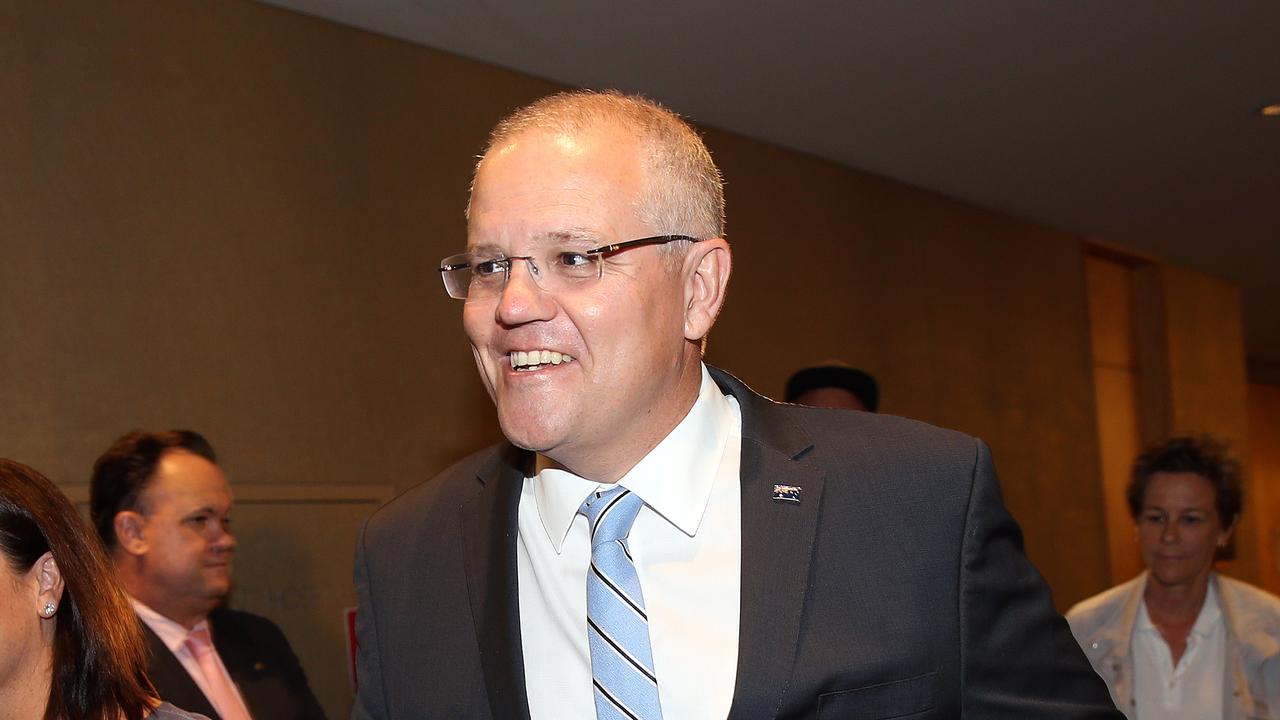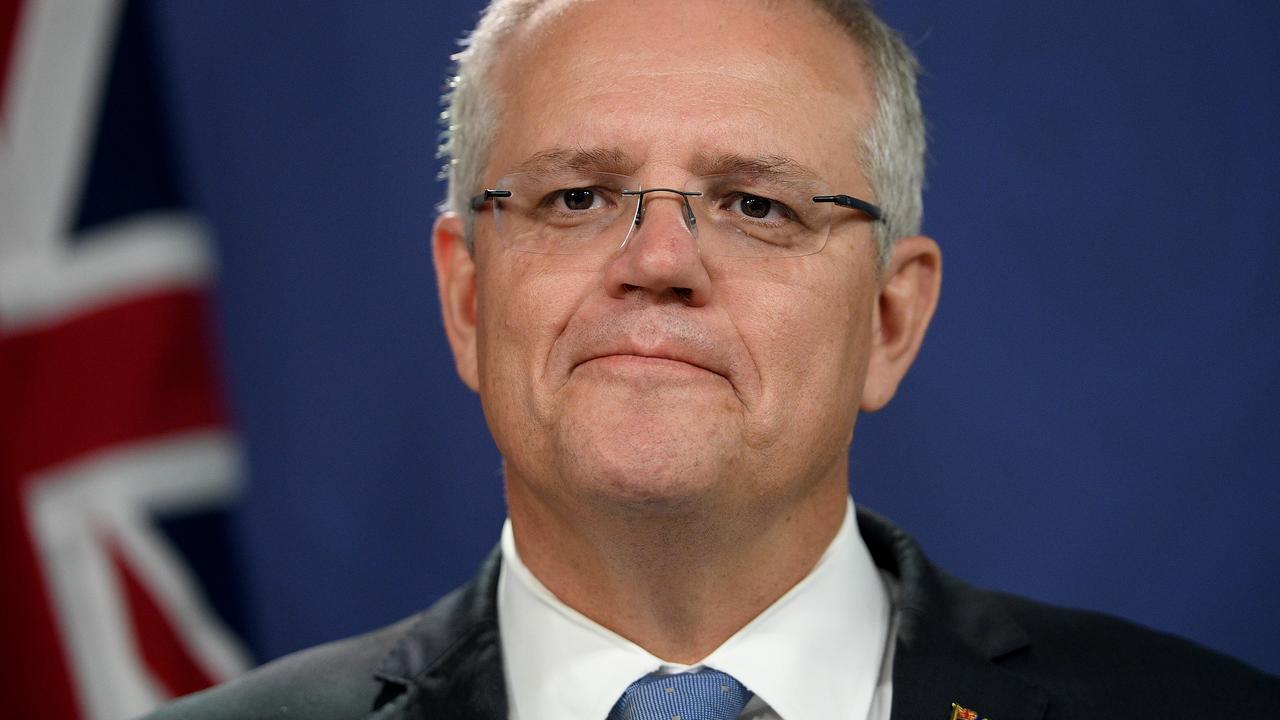AUSTRALIA'S national politics and government are suffering from a crisis of leadership epitomised by the standoff over the offshore processing of asylum-seekers.
The wider problem is a cumulative effect of poor policy decisions, the fundamental failure of the current arrangements of our minority government and a combination of frustration, weakness and rigidity in our leaders.
When the electorate most wants our political system to provide certainty, direction and leadership, when people unsettled by global financial crises seek security and when voters want partisan politics to be set aside in the national interest, the nation is being let down.
The issue of dealing with illegal boat arrivals crammed with asylum-seekers who are risking their lives at sea -- sometimes repeatedly -- and the inability of the government and the national body politic to deal with it satisfactorily -- in any sense -- have exposed the failure of this minority government at the end of its first full calendar year.
All the talk of a new paradigm and having a government and parliament that more accurately reflect the electorate's wishes has been shown to be falling well short of the promises in practice. The very mechanics of Labor governing in coalition with the Greens is shown to be empty and the written agreement bankrupt because the Gillard government can secure its junior partner's agreement on vital policy decisions only if they are variants of Greens' policy.
Bob Brown never pretended otherwise as far as his interests and priorities were concerned, but his adherence to that principled position has exposed the bankruptcy of the claims the parliament and government are working well. The passage of day-to-day legislation is no measure of the true workability of a parliament and the strength of a government.
Julia Gillard takes great pride in pointing to the events of the last week of parliament, which gave her gave an extra seat on the floor of the House of Representatives by virtue of executing the Labor Speaker, Harry Jenkins, and appointing Liberal-National Party defector Peter Slipper. Yet Labor is trying to prepare the electorate for controversies arising from Slipper's behaviour and excesses and already apportioning blame to Tony Abbott for not disowning Slipper previously.
So much of what is being negotiated in federal politics on both sides of the house is concerned with internal fears, anxieties and personal ambitions that the thrust of good policy-making has been blunted.
The handling of the arrival of a record number of boats full of asylum-seekers epitomises this internal political behaviour, which is so introspective it is creating a divide between the electorate and the politicians. No matter what you think about the level of the refugee intake, how to stop people-smugglers or the virtues of arriving by boat or air, the simple political fact is that Australia has lost control if its borders.
This is not to suggest a mass of people pouring over the border and swamping Australia but the reality is the government cannot stop people arriving illegally or deter them from making the voyage.
The vast bulk of those arriving are allowed to remain in Australia, so a growing portion of our immigration intake is being self-selected, not chosen by the Australian government.
No one in the asylum-seeker debate is advocating open slather -- not even the Greens. Human rights groups may be saying that we should basically allow everyone who gets here to stay, but no one explicitly says we should not try to manage our immigration program.
Against this backdrop we have a situation where the Labor, Liberal and National parties all support offshore processing. The ALP conference reinforced its policy only three weeks ago, and the Greens have a written agreement to keep Labor in power, yet legislation required to implement this policy to overturn the High Court's ban on offshore processing cannot get through parliament.
While the government is rapidly taking advantage of the appearance of the Opposition Leader's intransigence on the issue and accusing him of playing politics "while people are dying", the seeds of this policy disaster were sown years ago.
Kevin Rudd dismantled offshore processing as part of Labor's campaign to distance itself from the Howard years and the demonisation of the Pacific Solution policy of sending asylum-seekers directly to Nauru. Labor's softened rhetoric and global "push" pressures from the conflicts in Sri Lanka and Afghanistan combined to turn smugglers' attention back to Australia. Rudd's removal and his declaration on the execution night that there would be a "lurch to the right" under Gillard entrenched the factional differences within Labor and made policy changes more difficult.
Gillard's own misjudgments on asylum-seeker policy and hapless handling of her idea for an East Timor solution, then Manus Island in PNG and finally the excruciatingly slow negotiations with Malaysia meant Abbott was able to claim an ascendancy on the topic and paint Gillard into a corner where acceptance of the Howard-era Nauru option would be a humiliating defeat.
In part this was why Immigration Minister Chris Bowen's proposal to consider Nauru as part of the Malaysia Solution -- given the difficulties with Manus Island -- was rejected. Bowen's preferred position was rejected, a position he could have negotiated with Scott Morrison as his opposite number.
Abbott's own implacable opposition to Malaysia, despite departmental advice and the need for policy flexibility, meant the Opposition Leader was equally locked into a corner where acceptance of Malaysia would be as damaging for him as the acceptance of Nauru would be for Gillard.
The Liberal Party has its own divisions on policy grounds with some in favour of offshore processing but not in Malaysia, while others are totally opposed to any offshore processing.
Hence, Gillard and Abbott, while relentlessly pursuing the destruction of each other, have had to balance the internal politics and policy divisions while seeking to exercise leadership in the national interest.
Both have failed to detect the shift in public opinion towards wanting a solution to the impasse as part of the general, deep yearning for leadership which may involve being prepared to say
you were wrong or that you would put your own political concerns above potential damage to your reputation.
Gillard has failed the test on judgment, implementation and leadership, leaving Bowen to carry the burden of an impossible task with shifting support.
It is possible that out of this morass Bowen, and his Liberal counterpart Morrison, will emerge with an enhanced public standing and a burgeoning image of leadership.
Abbott has failed to demonstrate an ability to be flexible and consider changed circumstances, which may dictate that the ruthless pursuit of Gillard as an opponent and fixation with an early election should take a lower priority. After exercising an iron discipline that has surprised everyone, particularly his opponents, and that has put the Coalition into an enviable position in the polls Abbott's iron will runs the risk of becoming a sign of rigidity and an inability to adapt to new circumstances.
Of course, Abbott is right that it it not his job to save the government, or from the fact it has a partner in government that supports Labor only when the vital issues accord with Greens' policy.
While Brown has been able to take advantage of the "leadership" role his partnership with Gillard has afforded him, the Greens' leader simply ducks the need for real leadership, which may be difficult for him, when the government and the electorate want it.



